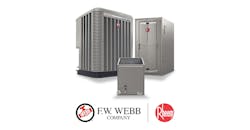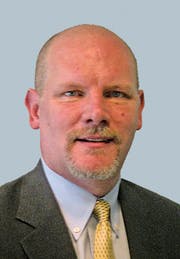“I was in an accident,” the contractor told me. “My truck was totaled and I ended up in the intensive care unit of our local hospital. If I’m hard to understand, it’s because my jaw is wired shut. My leg is broken. My back has problems. I can’t work. I’ve lost my company. I’ve lost everything.”
I think the contractor called me because he was lonely. He just wanted to talk to someone. His wife was forced to go back to work — two jobs. She was trying to save their home. I felt badly for the guy.
I asked him about insurance. He was fortunate. He had health insurance that covered his medical expenses. His vehicle insurance paid off his truck. However, there was nothing for expenses. There was nothing for the mortgage, the utilities, or the groceries.
His business evaporated. He had to refer calls to a competitor. I asked if he thought he could get his old customers back when he healed. “If” he healed was left unspoken.
“Doubt it,” he said.
The contractor didn’t own a business. He owned a job. It was a crappy job at that. He worked long hours, rarely took vacation, failed to charge enough, had no retirement, was burdened with all of the paperwork and hassles from the government and suppliers, and no had margin for error.
This is the peril of smallness. If your company cannot exist without you, it’s not a business. It’s a job. If anything happens to you, the company and everything you’ve worked for, ceases. Like a burnt out match stick, it’s not even worth it to try and rekindle the flame. If you start over, you start from scratch.
The peril of smallness should be a mandate for growth. It should be every small contractor’s goal to grow to the point of sustainability, with a team, a management structure, and operational procedures. A sustainable business is the ultimate insurance policy. It is an income stream that will continue to work when the owner cannot.
Moreover, the sustainable business is salable. It is attractive to others because of its sustainability. Ultimately, businesses are valued based on the market price of their assets and a discounted cash flow of future earnings.
If a business can’t function without the owner, there are no future earnings and the value becomes the market price of an old truck or two, out-of-date computers, aged truck stock, and a customer list. Of these, only the customer list is likely to arouse any interest outside of eBay.
It amazes me that so many contractors fail to see the necessity of growth. They don’t want to grow. They don’t want to market. They don’t want to hire anyone. They just want to exist.
How selfish.
“What will your wife do if you get hit by a truck tomorrow?” I asked a contractor at a recent trade show.
“Not my problem,” he said.
How selfish.
“She’ll get a check from the insurance company,” said another contractor when asked the same question.
He walked off as he answered, so I couldn’t ask him what she would do if he didn’t die. He probably would expect the government to take care of him. Some care.
Even if he died and had life insurance, chances are it’s not enough. A half million dollar policy will only yield a $40 thousand annuity with an 8% return. Will that replace his income? Will that help put his kids through trade school or college?
The conversation I had with the contractor with his jaw wired shut has haunted me for 20 years. It’s one of the reasons I’m so passionate about contractor marketing and growth. I hated that I couldn’t do anything for him and resolved to do what I could for others like him, before it was too late.
The contractor reached out to me because I was written up in the trade press when I started a new contractor franchise system. It was too late for him to buy a franchise or join an alliance. Neither would help him in his current state. Maybe they would have helped five years earlier if he was willing to work the system (and that’s a big if). Five years earlier, he was content being small. And selfish.
When the contractor with the jaw wired shut discovered the peril of smallness, it was too late for him. It’s not too late for you.
Matt Michel is CEO of the Service Roundtable (ServiceRoundtable.com). The Service Roundtable is an organization founded to help contractors improve their sales, marketing, operations, and profitability. Call toll free: 877/262-3341 for more information about how to join.













